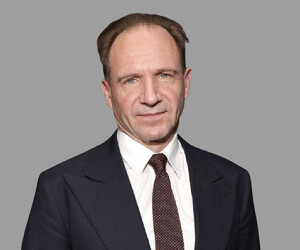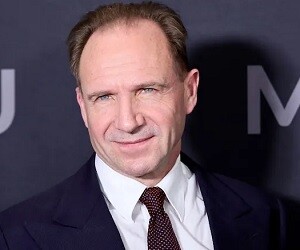

Last Updated: 19 Feb, 2025 | Views: 1999
Age: 63
Profession: Actor
Other Profession(s): Producer, Director
Famous For: For his Work in “Harry Potter”
Higher Education: Graduated
About (Profile/Biography):
Ralph Nathaniel Twisleton-Wykeham-Fiennes, born on December 22, 1962, is a distinguished British actor and filmmaker who has mastered both stage and screen. Known for his intense method acting and versatile performances, Fiennes first gained international acclaim as Amon Göth in Schindler's List. The thespian's remarkable career spans Shakespearean theater, blockbuster franchises like Harry Potter (Lord Voldemort), and critically acclaimed dramas. Beyond acting, he's ventured into directing with films like Coriolanus and The White Crow. Coming from a creative family, with siblings in film and exploration, Ralph's dedication to his craft has made him one of Britain's finest performers.
Ralph Fiennes’ Early Life & Background
• Young Ralph grew up in a bohemian household with artist parents, moving between England and Ireland, shaping his creative spirit and giving him an early exposure to nomadic lifestyle.
• The talented performer discovered his passion for acting at Bishop Wordsworth's School, where he first played Jesus in a school production that changed his life's trajectory.
• This skilled thespian worked as a house painter and porter before gaining admission to the Royal Academy of Dramatic Art (RADA), showing his determination to pursue acting.
Ralph Fiennes’ Career Breakthrough
• The versatile actor's portrayal of Nazi officer Amon Göth in Schindler's List (1993) earned him an Academy Award nomination and established him as a formidable dramatic force.
• This method actor learned to speak Hungarian and lost significant weight for his role in The English Patient (1996), demonstrating his exceptional dedication to authenticity.
• The talented star turned down the role of James Bond in GoldenEye (1995), which later went to Pierce Brosnan, believing he wasn't suited for action-hero roles.
Awards & Recognition received by Ralph Fiennes
• The acclaimed performer received Academy Award nominations for Schindler's List (1993) and The English Patient (1996), showcasing his dramatic prowess.
• This talented thespian won the Tony Award for his performance in "Hamlet" on Broadway (1995), proving his mastery of both stage and screen.
• The versatile artist received the William Shakespeare Award for Classical Theatre from Washington's Shakespeare Theatre Company in 2016, honoring his contributions to theater.
Recent Work of Ralph Fiennes
• The dedicated filmmaker directed and starred in "The White Crow" (2018), a biographical drama about Rudolf Nureyev, learning Russian to better direct the predominantly Russian cast.
• This experienced actor portrayed M in the James Bond series, coming full circle from once refusing the role of 007 to becoming his superior in the franchise.
• The versatile performer voiced Rameses in "The Prince of Egypt," a role that showcased his voice acting abilities and remains a favorite among animation enthusiasts.
Lesser Known Facts about Ralph Fiennes
• The dedicated artist learned to be a professional-level ballroom dancer for his role in Maid in Manhattan, practicing for months before filming began.
• This thoughtful performer maintains a flip phone and avoids social media completely, believing in maintaining privacy and focusing on his craft rather than digital presence.
• The meticulous actor spent time working in real kitchens to prepare for his role as a chef in "Burnt," though many don't know the film was originally titled "Adam Jones."
Notable Controversy around Ralph Fiennes
• The passionate artist sparked debate when he defended Ralph Fiennes in "Richard III" at the Almeida Theatre, suggesting that trigger warnings for theatrical productions diminish artistic impact.
• His directorial debut Coriolanus faced criticism for its modern-day setting of Shakespeare's play, with some purists arguing against the contemporary adaptation.
• The method actor's intense preparation for Voldemort allegedly scared young actors on the Harry Potter set, though this later became a celebrated part of production lore.
Wait!
Here're some popular profiles for you.


